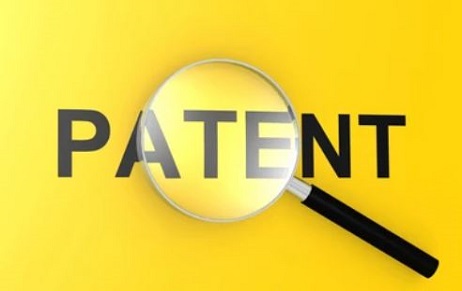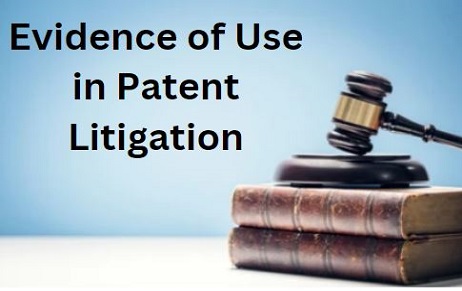INTRODUCTION In India the stages of the patent examination include the steps that must be…
Question of claim amendments by patentee in India
We would discuss hereinbelow the various scenarios when the patentee can seek amendment of the specification and claims of his patent. Further, this Article would examine as to when and when not the patent amendment should be allowed during the pendency of patent infringement suit. The Author, in the end, presents a hypothetical case to raise questions unanswered by Indian courts at the moment.
The statutory provisions containing amendment of patent applications/patents are contained in sections 57 to 59. Section 57 explains that an Application for Amendment can be filed to the Patent Office any time after the grant of the patent, subject to the condition that the Controller would not pass any order of refusal or acceptance during the pendency of a patent infringement suit or patent revocation proceedings. Further Section 58 points out that the High Court or Appellate Board instead of revoking a patent in a revocation proceeding may allow the patentee to amend the specification or claims in case the patent is held to be invalid. All these amendments must be by way disclaimer, correction, or explanation and without going beyond the scope of the unamended specification (Section 59).
So the two scenarios seem to be clear:
- One is when the Patentee can file Application of Amendment at any time after the grant of the patent.
- Second is when patentee can amend his specification or claims after Application for revocation is filed against him and his patent (first independent claim) is held to be invalid.
We would now discuss the third scenario that is the amendment by the patentee during the pendency of a patent infringement suit. In one case before the Delhi High Court in 2009, the patentee (plaintiff) filed an application for amendment (under section 58) of claim 1 during the pendency of patent infringement suit. (AGC Flat Glass Europe SA Vs Anand Mahajan and Ors) The patentee added words “a sensitizing material, typically tin” in claim 1 on a mirror without a copper layer in its coating.
The question was whether this amendment was allowable or not. The defendant contended that this amendment changes the scope of the original invention. On this, the court referred to UK decisions and divided such amendments into two categories: “the first one is a situation where the patentee has been apprised of the prior art by an opponent and amendment is undertaken to overcome the prior art; the second is a situation where the patentee himself has been aware of the prior art but has never taken steps to amend the patent on his own. UK Courts have held the second situation as being inexcusable, where the patentee must not be allowed to amend his patent”. The second category did not apply to this case. The amendment was held to be allowable in this case.
The Court pointed that the amendment was within the scope of the invention as the description clearly mentioned the presence of a sensitizing process as one of the three stages in the manufacture of mirrors and patentee’s amendment is by way of explanation.
Till now it becomes clear that the Court may allow the patentee to amend his specification or claim during the pendency of infringement proceedings, of course, subject to the conditions of Section 59. However, there are no existing decisions upon certain other facts which I would like to bring here by way of a hypothetical case. Suppose, a patent has been granted to an Applicant in 2008 in India whose equivalent United States patent was granted in 2009. The Indian patent’s first independent claim says,
- A composition comprising “A” and “B” in weight percentages of “x to y” % and “p to q” %.
Consider “A” and “B” as two broad classes of compounds. The dependent claims claim the specific compounds in narrowed concentration ranges.
The first independent in the US has been narrowed down by the Applicant to the specific compounds contained in those classes following the rejections of novelty by USPTO in light of the closest prior art Z. The US equivalent’s first claim is:
- A composition comprising “A1” and “B1” in weight percentages of “x1 to y1” % and “p1 to q1” %.
Now suppose a competitor company launched a product in India containing the specific compounds A1 and B1. The patentee (patentee) filed a suit for infringement of its patent. The competitor company (defendant) files a counter-statement invalidating the patent’s first independent claim in light of the prior art Z. The Patentee then files an application of amendment amending its claim 1 by bringing the claim limitations of dependent claims into claim 1 to overcome the prior art cited.
Now the question is, should patentee be allowed to do this claim amendment at this stage? From our understanding of the precedents, we believe that the patentee should not be allowed to make such a claim amendment. Delhi High Court in the previously discussed case clearly referred to UK decisions on claim amendment issues which point that the second is a situation where the patentee himself has been aware of the prior art but has never taken steps to amend the patent on his own. UK Courts have held the second situation as being inexcusable, where the patentee must not be allowed to amend his patent.
In this hypothetical case that we are discussing, it is clear that the patentee had a clear knowledge of the prior art Z since the US patent was granted but he did not take any steps to amend the Indian Patent after that. Further, isn’t the patentee under a continued obligation under section 8 to keep the Controller updated of the office actions in other countries till the grant of the patent which the patentee failed to do so in this case. The Indian Patent was granted after the US patent grant. I believe the patentee should feel the brunt now for not amending the claim earlier and in this case, the patent should not only be revoked on grounds of anticipation, but also wrongful obtainment of patent Section 64 (1)(c). Further, if such claim amendment is allowed, the patentee, as a precedent, would always get a free hand to amend his claims anytime during the patent life, and to draft the first claim unreasonably broad, knowing fully well of the invalidation actions that can be put on in front of him post the grant of the patent.
About the Author: Meenakshi Khurana, Patent Specialist at Khurana & Khurana, Advocates, and IP Attorneys.



